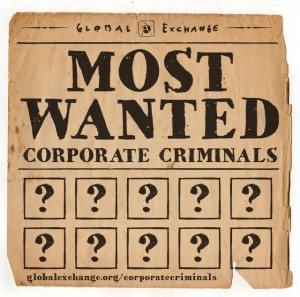Who Pays the Penalties
for Volkswagen’s Crimes?
 It’s refreshing to see the book
thrown at a corporate criminal, but it would have been even better if federal
prosecutors had aimed higher.
It’s refreshing to see the book
thrown at a corporate criminal, but it would have been even better if federal
prosecutors had aimed higher.
Oliver Schmidt, who had once been a
mid-level manager at VW’s engineering and environmental office in Michigan, was
sentenced to seven years in prison for his role in the company’s long-running
scheme to defraud the federal government in diesel emissions testing.
The charges against him included
conspiracy and violations of the Clean Air Act. He was also fined $400,000.
Schmidt, who was arrested when he
foolishly came to the United States for a family vacation, must be pissed off
at having to pay such a severe personal price while higher ranking VW officials
back in Germany will probably remain unscathed.
Appearing at his sentencing hearing
in a prison jumpsuit with his wrists shackled, Schmidt admitted culpability and
did not point the finger at any company superiors. However, he did not let VW
completely off the hook.
In a letter to the judge overseeing his
case, Schmidt said he felt “misused” by the company and that he was following
VW talking points when he met with a California air pollution official in 2015
and concealed the existence of the software that made the cheating possible.
Schmidt could not have participated
in a conspiracy all by himself. Yet the Justice Department does not appear to
have tried very hard to land any bigger fish (though at least one person senior
to Schmidt is being prosecuted in Germany).
Instead, the DOJ took the typical
route of bringing a case against the company as a whole and letting it buy its
way out of the entanglement.
In 2015 the DOJ, along with the Federal Trade Commission and the State of California, agreed on a civil settlement under which VW had to spend up about $10 billion to compensate customers and $4.7 billion on pollution mitigation.
That was followed by a criminal case in which VW had to pay a
$2.8 billion penalty. At least this involved a real criminal plea rather than
one of those deferred-prosecution or non-prosecution shams, but it is unclear
what consequences VW has faced beyond the payout.
The company is technically on
probation and has a compliance monitor, but that will probably not mean much.
Even before these cases, the company
had already been under federal supervision because of a consent decree stemming
from a 2005 case also involving emissions
irregularities.
Given the severity of the VW
cheating and the fact that it was in effect a repeat offense, the DOJ should
have done more to prosecute top executives, and the case against the company
itself should have had more than financial consequences.
Whereas strict limitations are
placed on the activities of individual felons, VW has been able to go on
operating as if the scandal had never happened.
A case can be made that the company
should have been shut out of the U.S. market, but instead it has been
advertising heavily and seeking to regain market share.
The main challenge is that it can no
longer promote its vehicles under the banner of “clean diesel.” Presumably, VW
is working on a new way to deceive the public.